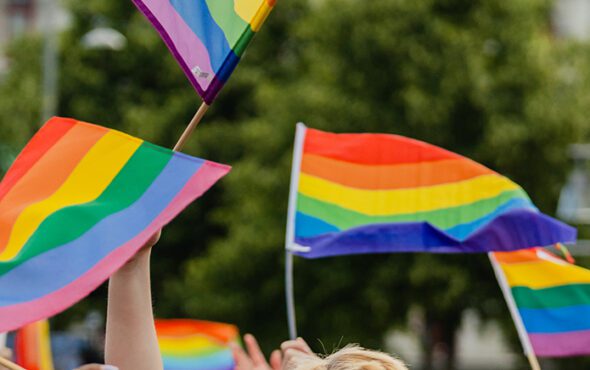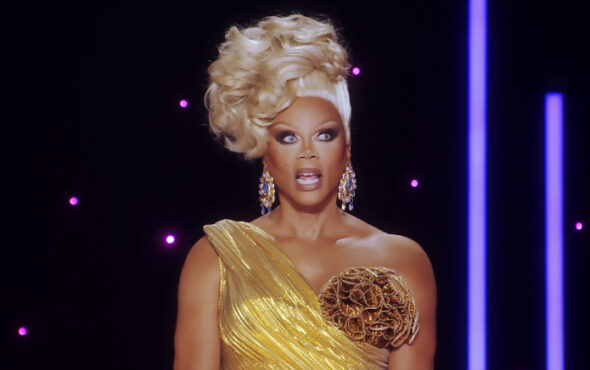
Progress for the world’s LGBTQ+ people has not been evenly spread in 2022, with some countries marking new milestones and others rolling back rights.
In wins, Singapore, Antigua and Barbuda and Saint Kitts and Nevis decriminalised gay sex in 2022, while same-sex marriage was officially legalised in Switzerland, Mexico and Slovenia.
But Indonesia approved a new criminal code banning extramarital sex which activists said could disproportionately impact same-sex couples as they lack the right to marry, while Russia expanded its ban on so-called LGBTQ+ ‘propaganda’.
In the United States, hundreds of bills targeting LGBTQ+ people have been proposed, according to rights group the Human Rights Campaign.
In August, a trans man was killed at a Pride parade in Germany, while nine people died in three attacks this year at gay nightclubs in Oslo, Norway, Bratislava, Slovakia, and Colorado, in the United States.
What does 2023 hold for LGBTQ+ people around the world?
Openly spoke with four activists about the biggest challenges ahead.
Gloria Dhel, Programs Director at Freedom and Roam Uganda, an organisation for LGBTQ+ women
“There is a huge rise in religious fundamentalism in east Africa because most sitting presidents are either very religious or their first ladies are. Because of that, there is an intentional effort to stop things they think are ‘un-African’ from thriving in their countries.
“For example, in Kenya, the president has banned all LGBTQ+ content on Netflix.
“In Uganda, there is also a rise in media propaganda, ‘ex-gay’ people, who are being manipulated to go around and speak on huge public platforms. They claim that LGBTQ+ people are recruiting people into homosexuality, abusing them, infecting them with disease, selling them sexually.
“Organisations working with LGBTQ+ people are being hunted and raided in every corner. As a very visible organisation we have had cases of people being followed and we receive a lot of threats. There is a lot of … anxiety.”
Peter Tatchell, Director of The Peter Tatchell Foundation, a British LGBTQ+ rights group
“Across Europe, the biggest threat we face is from the populist far-right, which demonises LGBTQ+ people … These movements have political power in two EU countries, Poland and Hungry, and significant parliament representation in more than half a dozen EU member states.
“In the UK, our big battle is to get a conversion therapy ban against all LGBTQ+ people, including the trans community, which hasn’t happened despite it being promised almost four-and-a-half years ago.
“We’re also still battling to secure a reform of the Gender Recognition Act, including the right to self-ID via a statutory declaration. LGBTQ+ refugees who are persecuted abroad are still faced with a cultural disbelief by Home Office officials and often have their applications for asylum turned down.”
Tinesh Chopade, Advocacy Manager at The Humsafar Trust, an LGBTQ+ organisation in Mumbai, India
“The Supreme Court has recognised LGBTQ+ people, but we are finding it difficult to translate that into social acceptance.
“Parents are not very much familiar with what LGBTQ+ stands for and the concept of sexuality itself. So we still find children being taken to the doctor for conversion therapy.
“Discrimination is also a very constant and ongoing thing. (The LGBTQ+ community) need an anti-discriminatory law in all settings, marriage recognition, and an end to harassment in health care.
“LGBTQ+ people are also behind in education. A trans person is often bullied and harassed at an early age and so is likely to drop out of school and later (have trouble finding) a formal job.”
Diane Rodriguez, President of the Silueta X Association, a rights group in Ecuador
“The greatest struggle for our LGBT+, trans and non-binary populations continues to be the basic right to life, in each of the Latin American countries. In Brazil, the Gay da Bahia Group states that an LGBT+ person is murdered or dies by suicide every 29 hours.
“In Ecuador, we have same-sex marriage, but gay couples are not allowed to adopt. Things are more difficult for the trans and non-binary population too, which I belong to.
“LGBTQ+ people frequently suffer from mobbing and workplace harassment. Trans people are frequently denied jobs. That is why the National Trans Platform presented the ‘Trans Labor Inclusion Law’ to the National Assembly this year.
“LGBTQ+ people are considered second-class citizens and we are thought not to contribute to the development of the country, so the economic inclusion of the LGBT+ population is another great debt.”
Reporting by Lucy Middleton.
GAY TIMES and Openly/Thomson Reuters Foundation are working together to deliver leading LGBTQ+ news to a global audience.



